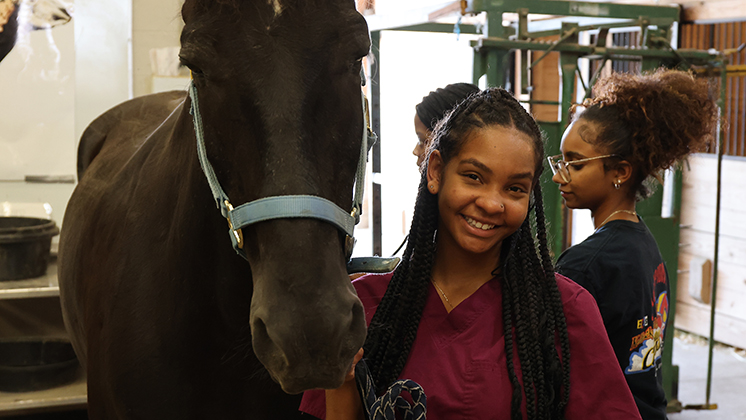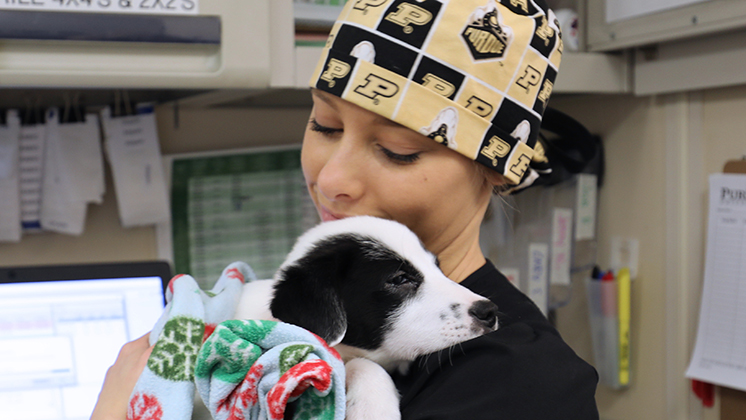
by Kelsey Wirt, MS, LVT and Josh L. Clark, MS, RVT
Becoming a veterinary technician, or vet tech, involves several key steps, which can vary somewhat by state. If you're considering this career in Indiana, here's what you need to know.
You will need to complete a post-secondary program in veterinary technology. It's important to choose a program that is accredited by the American Veterinary Medical Association (AVMA) to ensure that you'll be eligible for credentialing upon graduation. You can earn an associate’s degree or a bachelor’s degree in veterinary technology/nursing.
Decide how to choose the right vet tech program for you.
In Indiana, vet techs who have earned credentialing are considered Registered Veterinary Technicians. This involves passing the Veterinary Technician National Exam (VTNE), a comprehensive exam administered by the American Association of Veterinary State Boards (AAVSB). After passing the VTNE, you'll need to go through the application process with the state by submitting your VTNE score and school transcript. The Indiana Board of Veterinary Medical Examiner also requires applicants to take and pass a jurisprudence exam as well as a background check.
To maintain your credentials in Indiana, vet techs are required to complete 16 hours of continuing education every two years. This helps ensure that you stay up-to-date with the latest advances in veterinary medicine and maintain your skills.
Indiana offers a variety of opportunities for vet techs. You might work in a private veterinary practice, a specialty animal hospital, academia (Purdue University), a research facility, a zoo, and more. According to the Bureau of Labor Statistics, the mean hourly wage is $19.85 and mean annual salary is $41,280 for the state of Indiana. The job outlook remains very promising for those wanting to go into this career due to the shortage of vet techs in Indiana.
In conclusion, becoming a vet tech in Indiana involves obtaining a degree in veterinary technology, passing the VTNE, completing state credentialing requirements, and committing to continuing education. With these steps and the right skills, you can look forward to a rewarding career helping animals and their owners.
Find your calling as a Purdue Veterinary Nurse!
Not quite ready to apply? Connect with us to learn more.

Explore the physical and emotional challenges of being a vet tech, and discover effective strategies to manage and mitigate stress in this rewarding profession.
Read more
Discover the varying costs of vet tech education in the U.S., including factors like school type and residency, and learn about financial aid opportunities to make pursuing a veterinary technician career more accessible.
Read more
Explore how veterinary technicians/nurses can advance their careers with additional certifications in specialized areas like anesthesia, behavior, critical care, and pain management, as well as options for practice management and rehabilitation.
Read more